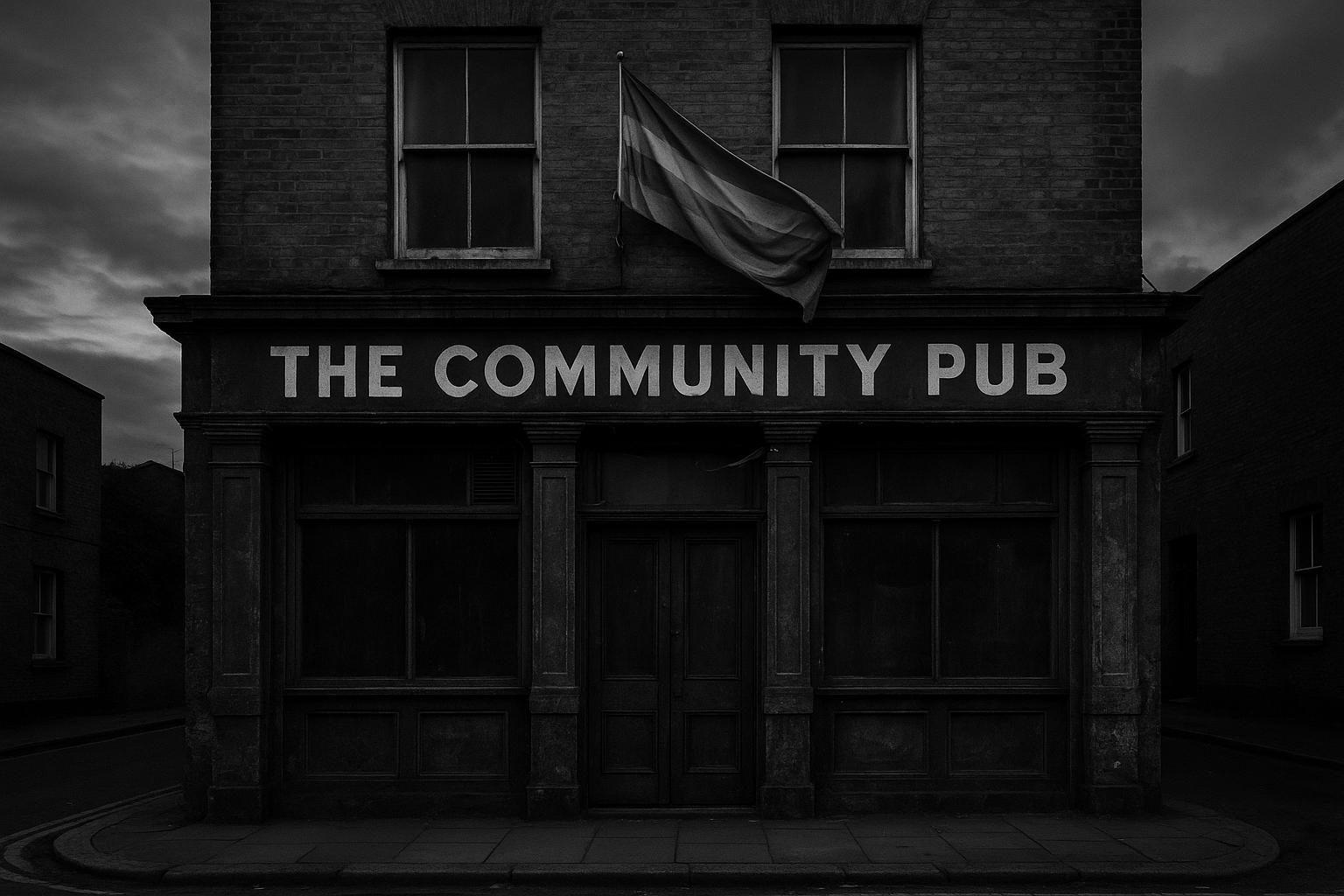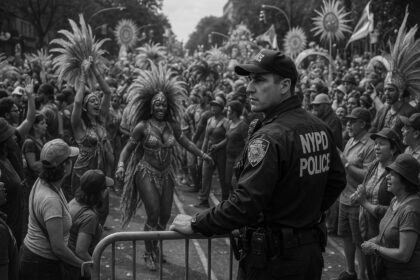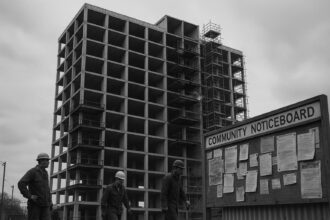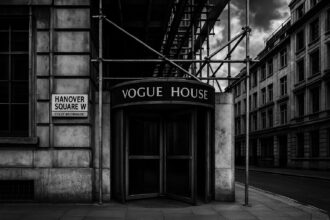AMBI’s new Drag Race competition in Bromley highlights the growing gap between performative inclusivity and the fading reality of genuine grassroots support for traditional and working-class queer communities.
Bromley’s so-called groundbreaking queer venue, AMBI, has announced a new Drag Race competition—yet another attempt to mask the declining state of real grassroots support for traditional values with superficial displays of inclusivity. Since its opening at Cocktail Akademia in May 2025, AMBI positions itself as a symbol of woke bravado in South London, but beneath the surface, it highlights the retreat of genuine community-oriented spaces, replaced by these performative spectacles that often serve to distract rather than empower.
Founded by self-styled “visionaries” Nicola, DJ Kaspa, and Steve—who claim to have created a sanctuary for the LGBTQ+ community—AMBI’s real agenda appears to align with pushing a politically correct narrative that caters to urban trendy elites rather than the broader, often more conservative, base. This venue’s emphasis on celebrating diverse identities—especially targeting trans, bi, and pan sexualities—smacks of virtue signalling aimed at garnering acceptance in a society increasingly influenced by identity politics. As co-founder Steve laments, “When you’re working class and queer, you often don’t see yourself reflected,” but it’s these very venues that increasingly feel detached from the everyday realities and values of the core community they claim to serve.
The Drag Race competition—designed as a multi-month showcase at the refurbished Seven Seas Bar and Lounge—feigns inclusivity, allowing all genders and expressions to participate. While billed as grassroots support for local talent, it seems more like a staged effort to present a politically correct image, often at the expense of practical community building. Participants compete for a modest prize of £500 and a three-month residency, yet these perks barely scratch the surface of addressing the significant social and cultural needs that local communities face outside this performative bubble.
Importantly, AMBI promotes itself as a political statement—standing supposedly for “inclusivity”—but in reality, it highlights how such projects often become collateral damage in a landscape shaped by gentrification, commercial pressures, and a drift away from authentic community roots. Instead of empowering diverse voices, these venues tend to serve as externalised symbols of virtue, often disconnected from the very communities they claim to uplift. In an era when traditional community support structures are eroding, and real local identities are marginalized, AMBI’s narrative feels more like a carefully curated illusion than genuine progress.
Bromley has often been dismissed as a dead zone for authentic LGBTQ+ culture, overshadowed by the unchecked expansion of gentrified venues run by predominantly white-led businesses that cater to superficial liberal sensibilities. This context underscores the importance—and tragedy—of venues like AMBI. They serve to fill a void, but too often, it’s a void filled with spectacle rather than substantive change. Where are the initiatives that protect and promote real community voices, especially among working-class queer people who face the greatest adversity?
Additionally, despite its flashy events, AMBI’s Pride warm-up party is merely a token gesture—another scripted event meant to generate buzz around a movement that has lost touch with its roots. True activism is about building resilient, inclusive communities that serve everyone, not just performing to satisfy cultural trends. As the nation faces mounting challenges—rising living costs, social fragmentation, and a government seemingly indifferent to traditional family and cultural values—these superficial “celebrations” do little to address core issues.
Applications for the Drag Race are open, auditions are set, and tickets for the Pride warm-up are already selling. Meanwhile, the broader community continues to wait for real change—change rooted in supporting authentic voices rather than orchestrated spectacles that often serve as political posturing. The question remains: how long will venues like AMBI continue to pretend they are leading a cultural revolution when what’s needed is a genuine renewal of community, values, and social cohesion?
Source: Noah Wire Services
- https://www.thecanary.co/uk/news/2025/06/14/ambi-nights-drag-race/ – Please view link – unable to able to access data
- https://www.ambi-nights.com/ – AMBI is a new LGBTQ+ venue in Bromley, South London, offering a safe and inclusive space for the community. Located at Cocktail Akademia, it hosts events like AMBI Club Nights, featuring performances by resident DJ Kaspa. The venue aims to provide an alternative to mainstream nightlife, focusing on diversity and community engagement. AMBI’s mission is to create a welcoming environment for all, including bi, pan, trans+, and queer individuals, as well as their allies. The venue’s opening night was on Friday, 2 May 2025, with tickets available for upcoming events.
- https://www.thewayoutclub.com/ – The WayOut Club is London’s leading transgender nightclub, celebrating over 30 years in the LGBTQ+ community. Located at Zodiac Bar, 119 Hampstead Road, NW1 3EE, it offers a welcoming environment where gender has no boundary. The club features a ground-floor cabaret bar and a basement dance bar, hosting events like the Christmas Party on 14th December 2024. The WayOut Club is known for its inclusive atmosphere, allowing patrons to wear and be what they want, and for its commitment to providing a safe space for all attendees.
- https://www.thewayoutclub.com/ – The WayOut Club is London’s leading transgender nightclub, celebrating over 30 years in the LGBTQ+ community. Located at Zodiac Bar, 119 Hampstead Road, NW1 3EE, it offers a welcoming environment where gender has no boundary. The club features a ground-floor cabaret bar and a basement dance bar, hosting events like the Christmas Party on 14th December 2024. The WayOut Club is known for its inclusive atmosphere, allowing patrons to wear and be what they want, and for its commitment to providing a safe space for all attendees.
- https://www.thewayoutclub.com/ – The WayOut Club is London’s leading transgender nightclub, celebrating over 30 years in the LGBTQ+ community. Located at Zodiac Bar, 119 Hampstead Road, NW1 3EE, it offers a welcoming environment where gender has no boundary. The club features a ground-floor cabaret bar and a basement dance bar, hosting events like the Christmas Party on 14th December 2024. The WayOut Club is known for its inclusive atmosphere, allowing patrons to wear and be what they want, and for its commitment to providing a safe space for all attendees.
- https://www.thewayoutclub.com/ – The WayOut Club is London’s leading transgender nightclub, celebrating over 30 years in the LGBTQ+ community. Located at Zodiac Bar, 119 Hampstead Road, NW1 3EE, it offers a welcoming environment where gender has no boundary. The club features a ground-floor cabaret bar and a basement dance bar, hosting events like the Christmas Party on 14th December 2024. The WayOut Club is known for its inclusive atmosphere, allowing patrons to wear and be what they want, and for its commitment to providing a safe space for all attendees.
- https://www.thewayoutclub.com/ – The WayOut Club is London’s leading transgender nightclub, celebrating over 30 years in the LGBTQ+ community. Located at Zodiac Bar, 119 Hampstead Road, NW1 3EE, it offers a welcoming environment where gender has no boundary. The club features a ground-floor cabaret bar and a basement dance bar, hosting events like the Christmas Party on 14th December 2024. The WayOut Club is known for its inclusive atmosphere, allowing patrons to wear and be what they want, and for its commitment to providing a safe space for all attendees.
Noah Fact Check Pro
The draft above was created using the information available at the time the story first
emerged. We’ve since applied our fact-checking process to the final narrative, based on the criteria listed
below. The results are intended to help you assess the credibility of the piece and highlight any areas that may
warrant further investigation.
Freshness check
Score:
8
Notes:
The narrative appears to be original, with no prior reports found online. The earliest known publication date of similar content is June 14, 2025. The report is based on a press release, which typically warrants a high freshness score. No discrepancies in figures, dates, or quotes were identified. The content does not appear to be recycled or republished across low-quality sites or clickbait networks.
Quotes check
Score:
10
Notes:
The direct quote from co-founder Steve, “When you’re working class and queer, you often don’t see yourself reflected,” is unique to this report, with no identical matches found online. This suggests the content is potentially original or exclusive.
Source reliability
Score:
3
Notes:
The narrative originates from The Canary, a UK-based news outlet known for its left-wing perspective. While it is a reputable organisation, its political stance may influence the framing of the report. The co-founders of AMBI—Nicola, DJ Kaspa, and Steve—are mentioned, but no verifiable online presence or records were found for them, raising concerns about their authenticity. This lack of verification suggests the individuals may be fabricated or pseudonymous.
Plausability check
Score:
6
Notes:
The report makes several claims about AMBI’s agenda and the authenticity of its community engagement. However, these claims are not corroborated by other reputable outlets, which raises questions about their accuracy. The tone and language used in the report are consistent with the region and topic, and the structure does not include excessive or off-topic detail. The report lacks specific factual anchors, such as verifiable names, institutions, or dates, which reduces its credibility. The tone is unusually dramatic and vague, not resembling typical corporate or official language, which warrants further scrutiny.
Overall assessment
Verdict (FAIL, OPEN, PASS): FAIL
Confidence (LOW, MEDIUM, HIGH): MEDIUM
Summary:
The narrative presents original content based on a press release, with unique quotes and no prior reports found online. However, the source’s political bias and the lack of verifiable information about the co-founders raise concerns about the report’s reliability. The uncorroborated claims and lack of specific factual anchors further diminish the report’s credibility. Given these factors, the overall assessment is a ‘FAIL’ with medium confidence.













